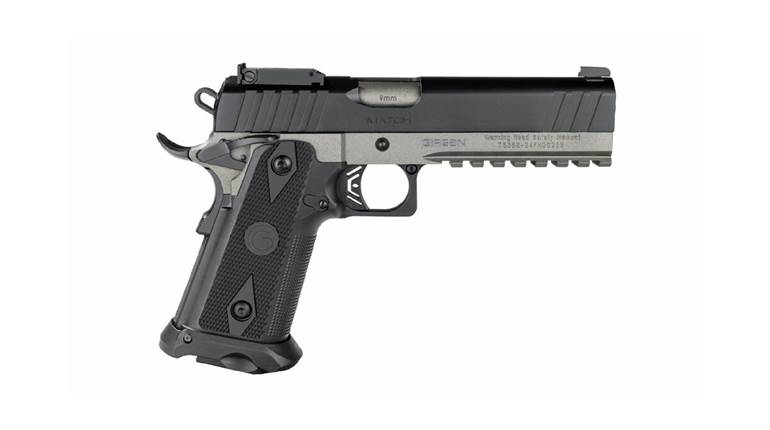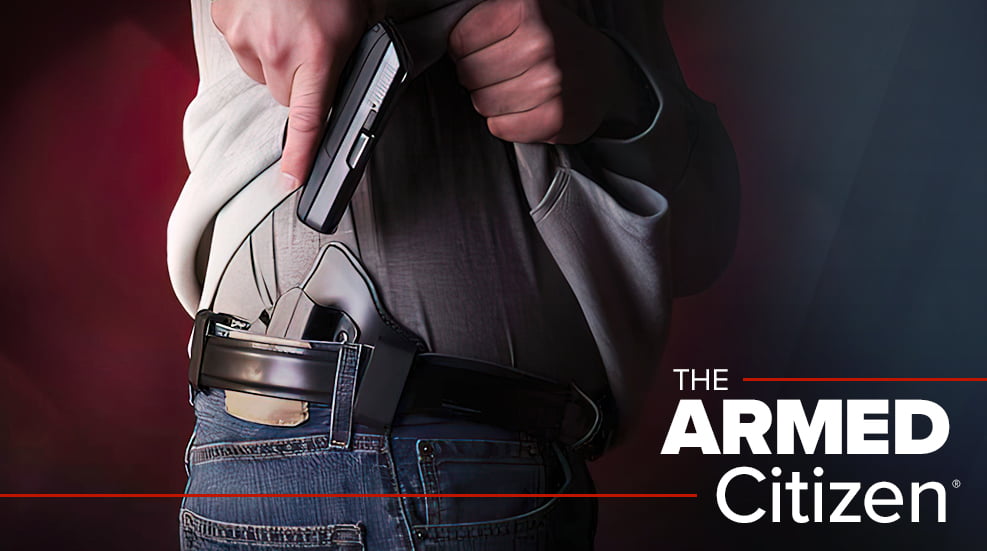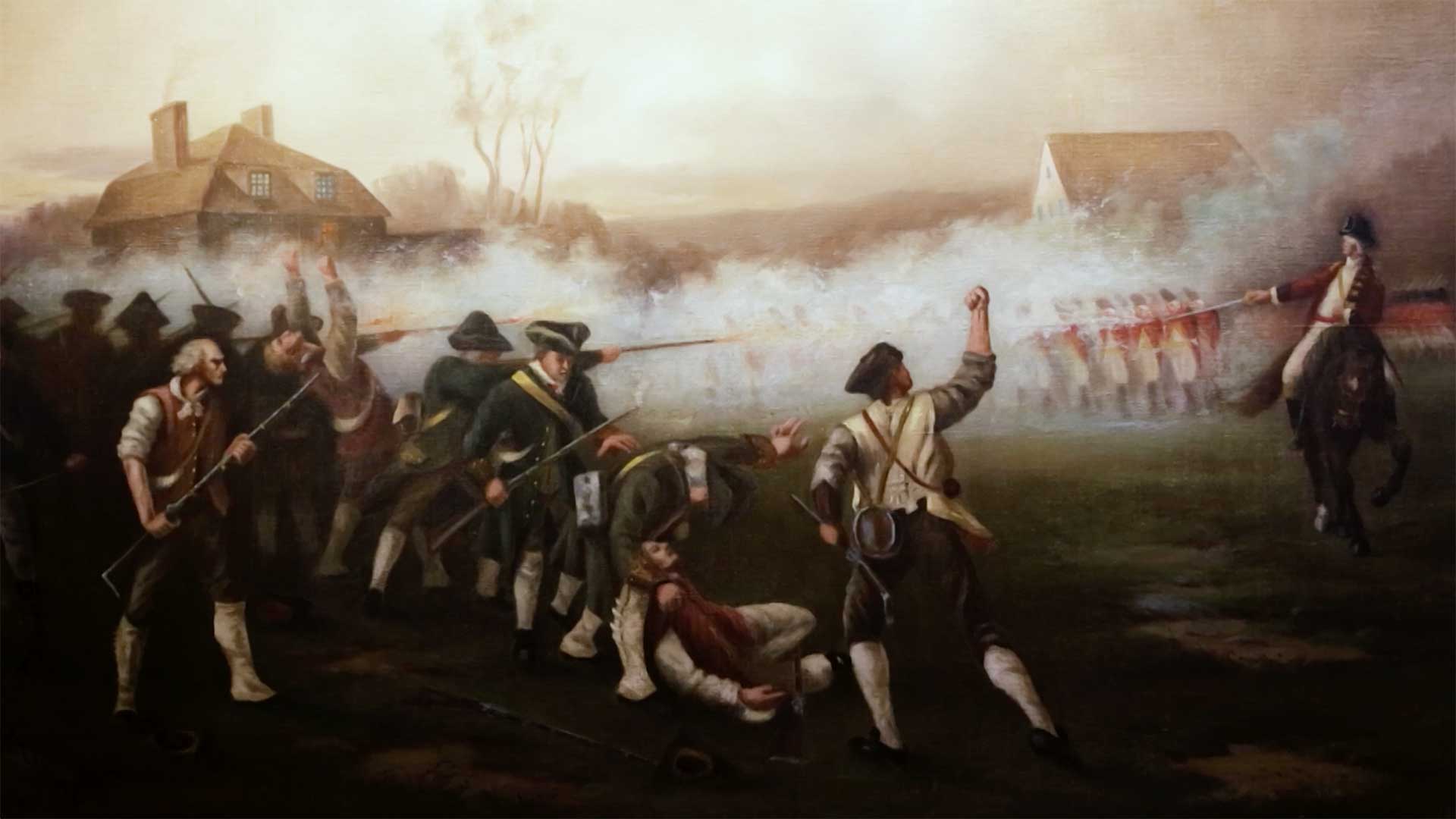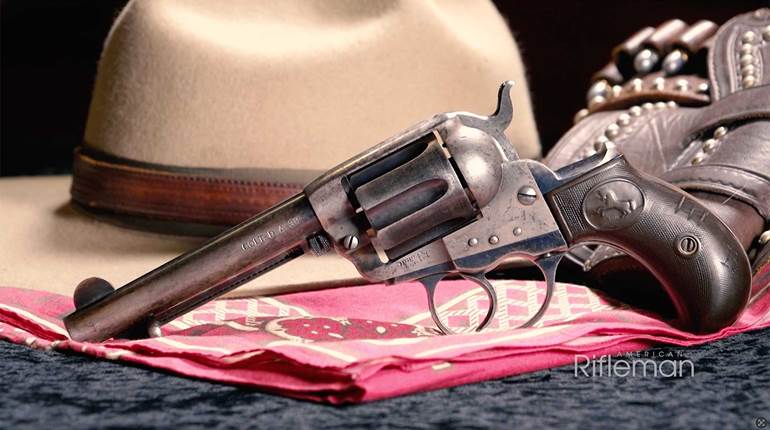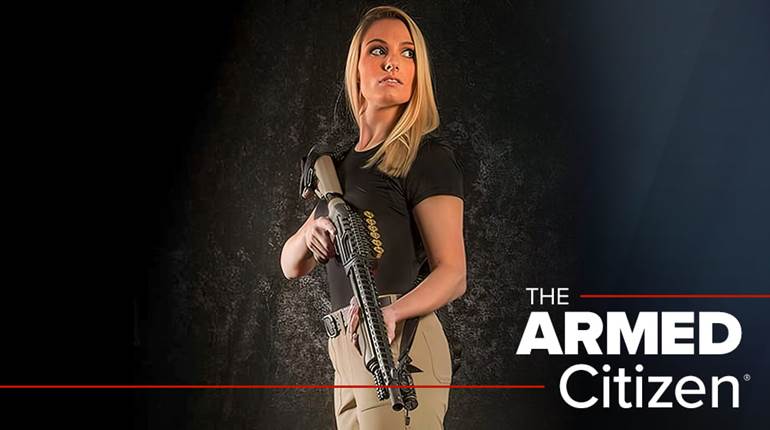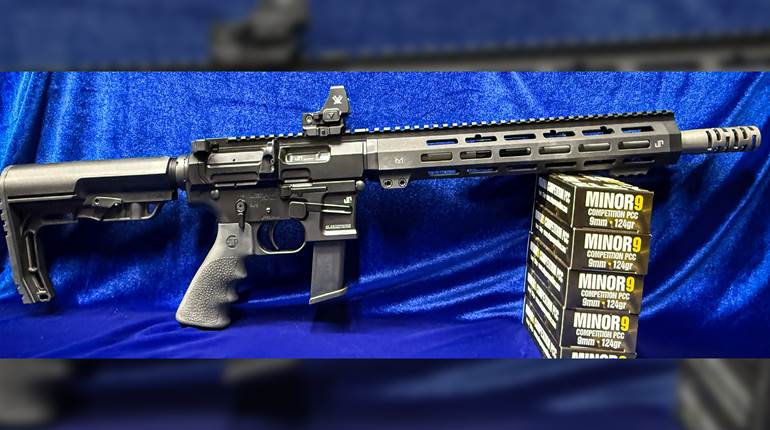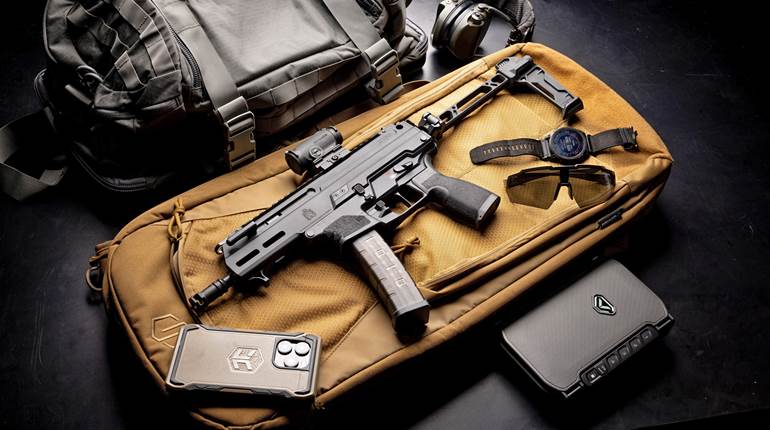
Last year, as my daughter Laney prepared to move out of state and enter the job market, she asked for some range sessions oriented toward home defense. I wrote about the experience in the September 2023 American Rifleman magazine issue and shared some of the range results. I had suspected that my daughter’s results as a petite young woman would be interesting to readers who also might know a first-time gun owner working through similar choices, as well as shooters who find that they have less grip strength than they once had.
As I went through all of the data for the article and saw how she struggled with the micro-sized 9 mm Luger, a natural question jumped out: How would she do with a larger 9 mm handgun? A few months later, she came out to the range with me to find out.
 The original test in the September 2023 issue of American Rifleman compared shooting results with the (from l. to r.) LTT customized Springfield Armory Hellcat, Glock 42 and Walther P22.
The original test in the September 2023 issue of American Rifleman compared shooting results with the (from l. to r.) LTT customized Springfield Armory Hellcat, Glock 42 and Walther P22.
If you haven’t read the original article, the format of the test was the most basic of self-defense scenarios. Aimed in at target just 3 yards away and on the signal, she fired three shots as quickly as she felt she could keep the shots in an 8" circle. We did this with three similarly sized pistols, all in the micro handgun class popular for personal defense and concealed carry. First we established a baseline with a Walther P22 in .22 Long Rifle, then stepped up to a Glock 42 in .380 ACP and repeated the drill. Finally, Laney shot the drill using an LTT-enhanced Springfield Armory Hellcat. Both the G42 and the Hellcat had extended magazines to allow for a full firing grip.
Over the course of two separate range trips and enough individual strings to establish a solid average, it was clear that the .380 was in a sweet spot where Laney could fire it rapidly and accurately. The 9 mm Hellcat was arguably "too much" at her current experience level, the extra power coming with observable downsides in speed and accuracy even at just three long steps distance. Her subjective assessment was that she was confident in her ability to handle and control the little .380 and much less so with the micro 9 mm.

I imagine that many readers looked at the original data and immediately wondered how a larger 9 mm pistol would have compared to the Hellcat in Laney’s hands. I wondered as well and began to look for prospective pistols to have her try. There is no shortage of compact and full-size 9 mm pistols on the market to choose from, and narrowing the field was tough.
I ultimately settled on two choices: the Walther PDP F-Series and the Springfield Ronin Operator 4.25”. Walther designed the PDP F-Series around smaller-handed shooters with input from experienced female instructors. I thought that the new PDP could be a great fit for my daughter, and I’m partial to the full-size PDP as one of my preferred striker-fired, service-size pistols. The Ronin was a bookend of sorts, being a thin, single-stack 9 mm with the 1911’s reputation for shooting "softly."
It is worth noting that my daughter is petite with hands that are almost certainly in the smallest quartile. Even the svelte double stack PDP F-Series is a large pistol in her grasp. The reduced trigger reach in the F-Series model made it workable for her and one of the few double-stack, intermediate-size pistols she can reasonably handle.
It had been a little over six months since our range sessions described in the original article. During that time, Laney hadn’t dry-fired nor been to the range, so we started off with some review and then warmed up with the little Walther P22 from the initial project. We moved into the same exercise as before and rehearsed, firing the three shots into the 8" circle as quickly as she felt confident of hits from 3 yards. Soon her times for the three shots were nearly identical to her original results. The same young woman different days so far removed from one another is a challenge for valid comparisons, but I felt like the similarity in .22 LR results was "calibration" to move ahead.
 Action shot from the middle of a rapid-fire string with the Springfield Armory Ronin in 9 mm Luger.
Action shot from the middle of a rapid-fire string with the Springfield Armory Ronin in 9 mm Luger.
Laney was able to shoot the PDP F-Series quite well, with the bulk of the impacts only using about 1/3 of the 8" circle in a fist-size cluster. Her speed was slightly faster than the Hellcat averages but still well behind her .380 times with the Glock 42. Undoubtedly, she could have sped up with a correspondingly looser set of hits. However, there wasn’t an observable time lag corresponding to "over-aiming" at the close target.
Watching her and observing video taken from the side, I could see that the time was largely a result of reacting to recoil as the pistol still moved in a large arc, and she had to very consciously "hang on" and then react to the pistol settling back to the target area. With more time behind the pistol, this would quickly improve, but without regular refresher sessions, I suspect that the "on-demand" performance would revert to something much like these results.
On the test day, my daughter had some long fingernails, and these had a negative impact on her ability to shoot. Grasping the pistol firmly throughout the rapid fire 9 mm strings was difficult enough, but the way the long nails interacted with her firing hold on the PDP F-Series was causing some discomfort. It undoubtedly affected performance and comparison but is a real-life consideration for most of the women I know.
Laney fired a magazine through the lightweight Commander-length Ronin to get the feel for it, and then we jumped into the testing. The first three-shot string was quite similar in time to the PDP F-Series, and then the strings just got faster and faster as she gained confidence and was able to get in a positive rhythm with the pistol. Her hits were centered in about a 6" cluster of the larger 8" target. Her best string was a blistering 1.03-second total, with follow-up shots at 0.35 and 0.33, nearly identical to her .22 LR intervals. This is why, 100 years from now, the M1911 will still be popular. The slim grip, short trigger break and favorable recoil impulse just "clicked" for her.
As promising as the Ronin results were, I was tempted to see about getting Laney some type of similar 9 mm M1911. The counterpoint was that, as a home-defense pistol that will largely be set aside until needed, much like a fire extinguisher, the M1911 has some drawbacks. The biggest drawback of the M1911 that the thumb and grip safeties can be a liability until a shooter has mastered the controls and can operate them with confidence. Shooting enthusiasts often forget that a regular person, under even mild stress, tends to see the slide stop, magazine release and thumb safety as a confusing array of switches and levers. If Laney was willing to put in the effort to learn further on the platform, it is certainly promising.

In the original testing, I had chosen the Federal 135-grain Hydra Shok Deep load for the Hellcat because I find it to have a relatively soft recoil impulse relative to its performance. I used the same load in the Walther and Ronin to have a valid comparison. However, after seeing how the 9 mm was just over the edge of controllability for Laney in the original test, I began to think about lighter-weight 9 mm loads. After I had the initial results with the same Hydra Shok in the two test handguns, I had my daughter reshoot a few strings with Black Hills’ 100-grain solid-copper Honey Badger bullets. These are non-expanding defensive loads that have a unique fluted profile and leave wound tracks in ballistic gelatin much like a traditional high-performance JHP.
In each pistol, the lighter load was promising. The PDP F-Series was about 5/100ths of a second faster in recovery time for each shot while giving even tighter three-shot groups. The Ronin/Honey Badger combo was as much as a tenth faster in recovery and averaged 7/100ths with similar hits to the heavier Hydra Shoks. More important than the difference between a 0.67- or 0.62-second split was that the lighter load seemed to be inside the threshold where she was much better able to hang on and the overall arc of the pistol as it cycled was far less extreme.
As a rule I prefer 124-grain and heavier 9 mm defensive loads to better the odds for deeper penetration when expansion occurs. But in cases where a shooter can control a lighter load where a "duty load" is too much, it may be a worthwhile trade. In some cases, the 115-grain and lighter projectiles may not reach the "FBI minimum" 12" of penetration in gel if the bullet is expanding properly so there is a trade-off consideration.
 The author and his daughter at the end of a great day on the shooting range. Field Editor Justin Dyal’s daughter fired the Ronin Operator 4.25" and the Walther PDP F-Series in 9 mm Luger for time and score at close range.
The author and his daughter at the end of a great day on the shooting range. Field Editor Justin Dyal’s daughter fired the Ronin Operator 4.25" and the Walther PDP F-Series in 9 mm Luger for time and score at close range.
Any potential loads should be vetted for reliable function in a defensive pistol, but with light-for-caliber loads, I would especially want to make sure that there is enough recoil to function the stiff recoil springs in small carry guns.
Undoubtedly, even as this test was expanded to two mid-size 9 mm pistols, many readers are still curious about how some other model/caliber/or type of handgun/load would have compared. I am also curious. I find that getting the .22 calibration and about two handguns is all my daughter can do in a session before she gets tired and the results start to affect the data. Her hand size and grip strength present an interesting challenge, so after each range day, I find myself wondering about any number of alternatives.
One thought that might jump out for some readers, is if my daughter did this much better with a heavier, larger, mid-size 9 mm, what about an even heavier full-size duty or competition-style pistol? It is a fair question and, at least in her case, the pistols in that sub-32-oz. class are about the limit of what she can comfortably/confidently hold at arms’ length.
I’m not sure when the next time I’ll get a range day with my daughter will be, but each one is special.












